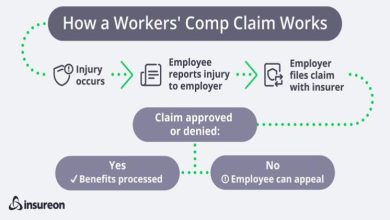Understand Your Rights in Tucson Divorce Laws

Whether you’re going through a divorce or have already been, you need to know your rights. If you don’t know your rights, you can end up losing money, time, and resources.
-
Community property
Whether you are going through a divorce or not, you should understand your rights in Tucson divorce laws. These laws will help you to determine how your assets are divided. Depending on how long you have been married, this process can be complicated.
Arizona has community property laws that are designed to make property division easier. Each party will receive half of what they once owned together. The laws also state that debts incurred during the marriage will be split evenly. If you have questions about your rights in Tucson divorce laws, contact a qualified attorney for assistance.
When a couple gets married, they typically buy their first home together. The home is only one of the few assets that are considered community property. Other items that are considered community property include bank accounts, retirement accounts, and life insurance.
The majority of debts incurred during the marriage are also considered community property. This means that each spouse is obligated to pay a portion of the debt. It is important, to be honest, and truthful with your legal representation.
If you have questions about your rights in Tucson and what property you should receive, contact a Divorce lawyer in Tucson. You may need to provide documentation in order to prove your claim. This may include financial documents, personal testimony, and legally actionable evidence.
The court may order you to pay an equalization payment. This can be made in a lump sum or in installments. This payment helps to balance your ledger dollar for dollar.
You may also be required to continue paying co-tenancy on your home. This means that you are not allowed to sell the home without the court’s permission.
-
Parenting time
Getting a divorce can be a difficult process. Understanding your rights in Tucson divorce laws is important to ensure your child’s best interest. Your divorce lawyer can help you understand your rights and navigate the complex legal and financial aspects of a divorce.
In Arizona, the courts use a number of factors to determine what is in the best interests of your child. These factors include the relationship between the parent and child, the health of the child, and the ability of the parent to cooperate with the court.
One of the most important issues to resolve is custody. Generally, the court will grant shared custody to both parents. A shared custody arrangement allows both parents to have meaningful time with their children.
A parenting time plan is also a good way to ensure the best interests of your child. It can include a schedule for school breaks, vacation time, and holidays. It can also include a schedule for contact with the other parent. It’s important to have a parenting time plan before filing for a divorce.
A parent who fails to follow the court’s parenting time order may be held in contempt of court. Contempt of court can involve monetary sanctions and even jail time.
The court also has the power to award grandparents visitation rights. This can be especially important for children who live with their grandparents.
When it comes to parenting time, Arizona courts usually award a 50/50 split. However, it isn’t always equal. Depending on the child’s schedule, the parent’s work schedule, and the other parent’s availability, the amount of parenting time may vary.
Using parenting time and other factors, the courts make decisions that are in the best interests of your child.
-
Child support
During a divorce, one of the things that are considered is child support. It is a court order that requires a non-custodial parent to pay a certain percentage of the other parent’s gross monthly income.
Usually, child support is based on the amount of time the child spends with each parent. However, if the parents can’t agree, the court will make the decision. The Arizona family court considers all the relevant factors before making a decision. The court will also consider the cost of daycare, health insurance, and other needs of the children.
If the non-custodial parent fails to make a payment, he or she may face civil penalties or jail time. The judge may also deviate from the child support guidelines if it’s in the best interest of the child.
The court uses an income-based model to determine the amount of child support. This model takes into consideration the income of both parents, as well as the cost of health insurance, daycare, and other costs.
A modification may be warranted if there is a significant change in the income of one of the parents. Also, a parent may be able to get a new child support agreement in the event of a significant change in parenting time.
When calculating the child support amount, the court takes into consideration several factors, such as the age of the children and each party’s gross monthly income. This process is also known as the income share model.
The Arizona child support guidelines are also very important. These guidelines are designed to provide the family courts with guidelines that will help them determine the proper amount of child support. They also aim to be consistent with state and federal law.

-
Spousal maintenance
During the divorce process, Arizona divorce laws allow spousal maintenance to be paid to a lower-earning spouse who is unable to become self-sufficient due to age, illness, or inability to find employment. It can also be awarded to a spouse who made a significant contribution to the earning capacity of the other spouse.
In determining whether a lower-earning spouse is eligible for spousal maintenance, the court will look at many factors. These factors include the age, physical and mental health of the spouse, and the spouse’s financial resources. It also considers whether the receiving spouse was able to maintain a reasonably comfortable lifestyle during the marriage.
Permanent spousal maintenance is awarded when the lower-earning spouse is unable to become self-sufficient due in part to age or illness.
Arizona spousal maintenance is a form of alimony. Unlike child support, which is money paid to care for children, spousal maintenance is paid to a spouse who has been unable to become self-supporting.
In order to qualify for spousal maintenance, a spouse must be able to show that he or she contributed to the other spouse’s earning ability. He or she must also meet age requirements.
Besides the factors above, the court will also consider the cost of living. The judge will also take into account the rate of return on investments.
In some cases, spousal maintenance may be awarded to a spouse who contributes to the education of the other spouse. The judge will also consider the value of the property the spouse owns.
-
Tax consequences
Whether you are going through a divorce or are just remarrying, there are several tax consequences to consider. While this may seem like a no-brainer, it is a good idea to do your homework before you sign the dotted line. After all, not all assets carry the same tax consequences.
A good divorce attorney will know all the tax nuances of dividing assets. Oftentimes, this will involve repositioning certain assets to minimize their tax liabilities. Aside from a tax write-off, the ramifications of a property move can have lasting implications. For example, if you sell your home and move to a different city, you may be liable for capital gains taxes.
It is also a good idea to consider tax implications before dividing retirement savings accounts. Oftentimes, you will be required to move your accounts to a new trustee. This can reduce the value of your nest egg.
There are several tax benefits to owning and maintaining a retirement account. You may be able to take advantage of the tax breaks without having to sell your prized possession. In addition to tax benefits, your retirement account is an effective way to save for retirement. It is also a good idea to make sure you keep up with your 401k plan. You should also consider having a financial planner helps you plan your post-divorce finances.
The tax consequences of a divorce can be taxing, especially if you aren’t on the same page when it comes to your finances. In fact, the tax consequences of a divorce may actually affect your tax bracket in the long run. If you are in the market for a new home, you may be able to take advantage of the capital gains tax exclusion without sacrificing your own property.




